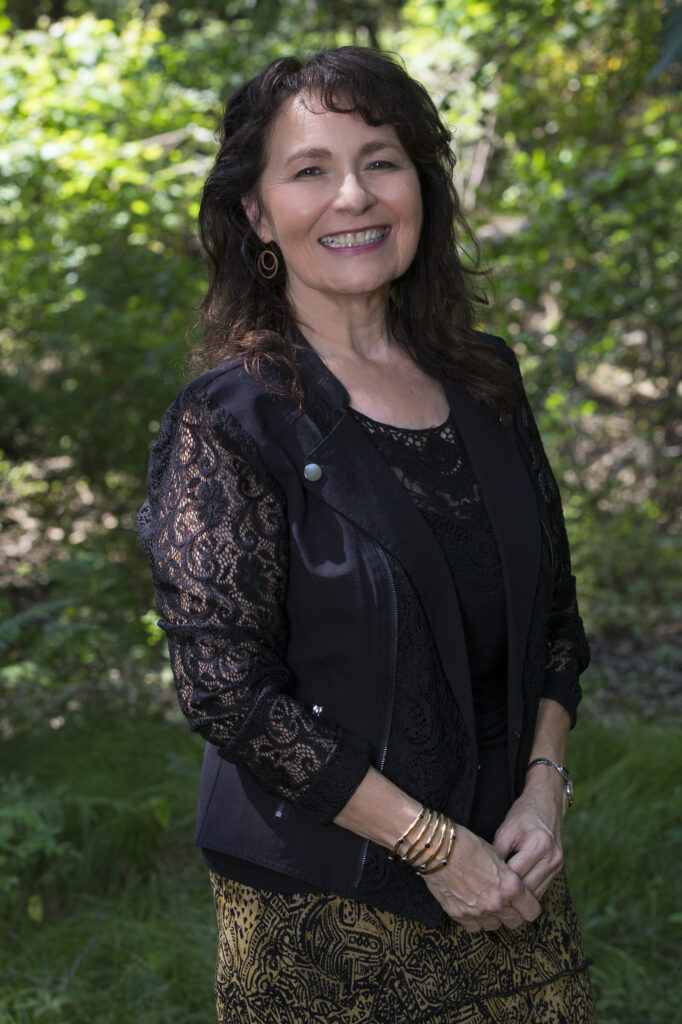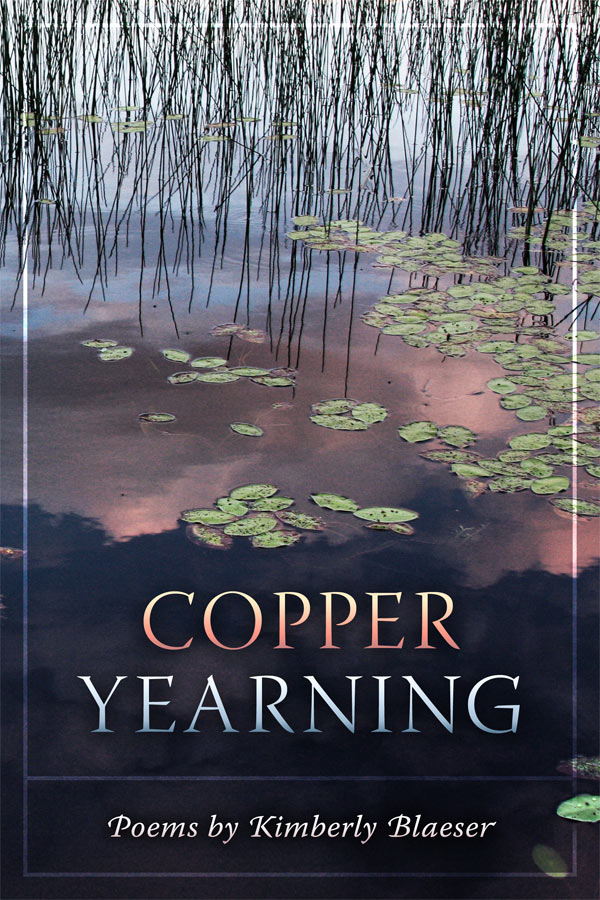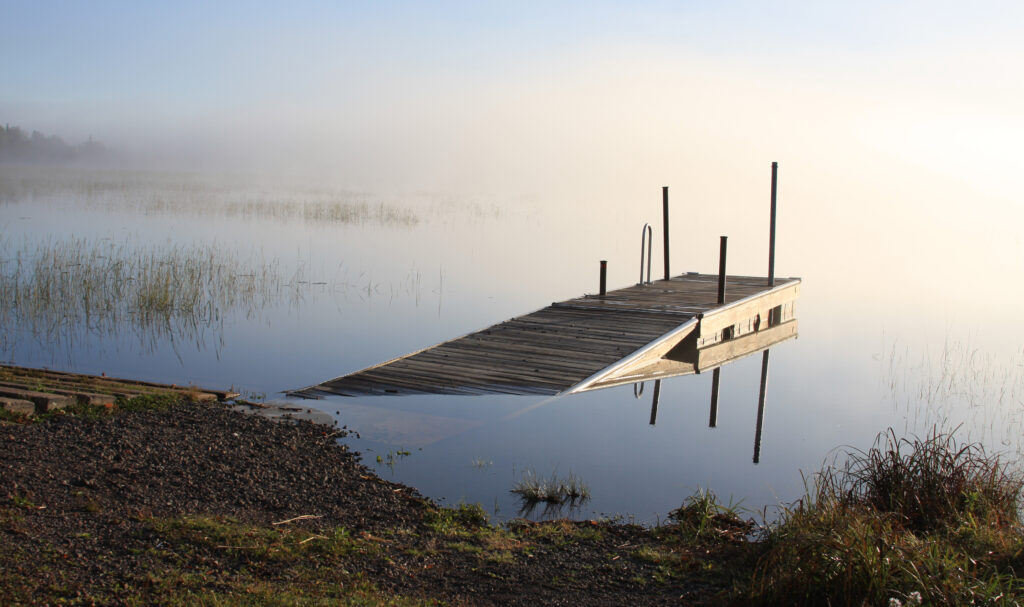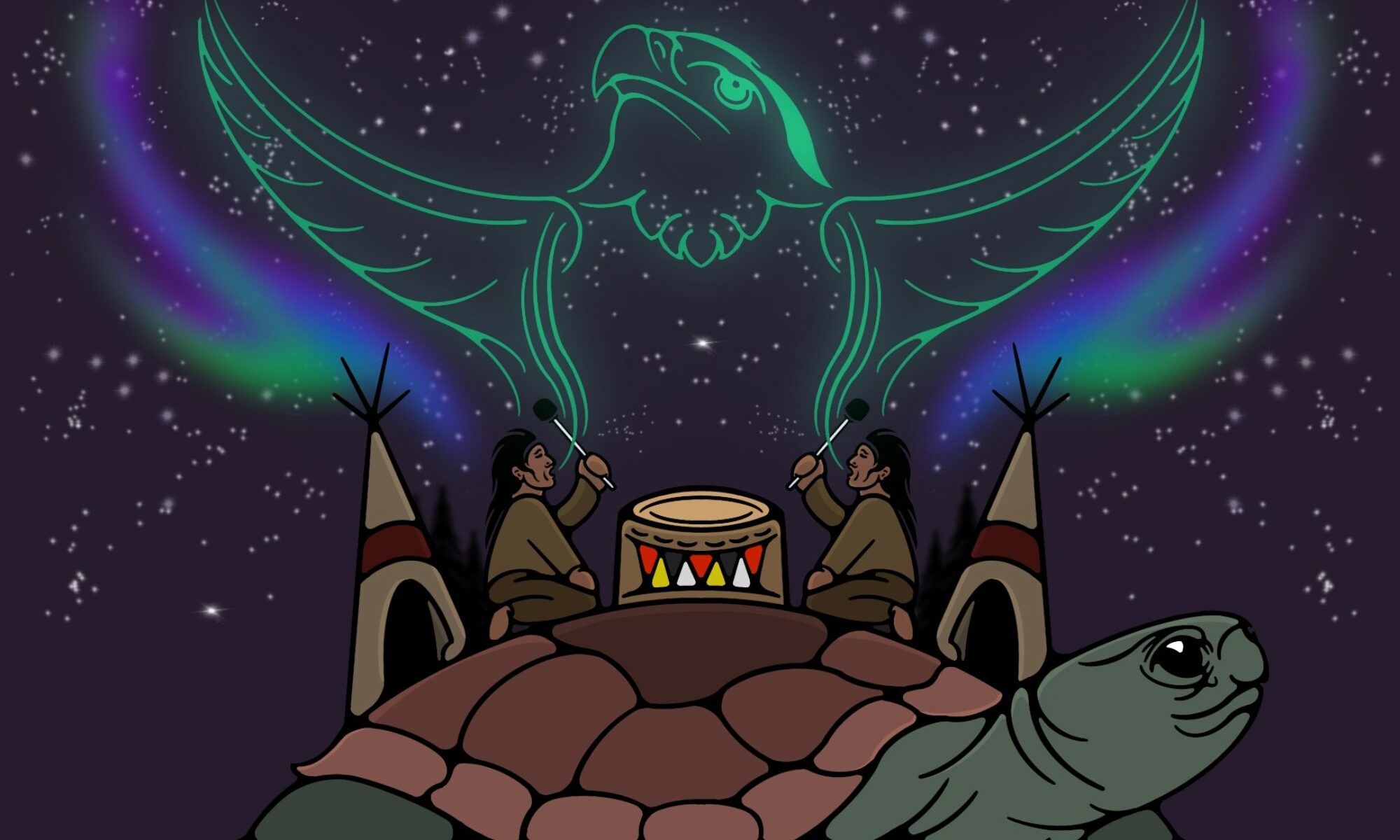
Artist Statement
I see my work in writing and photography as an “act of attention,” as a way of seeing and re-seeing the universe around and within us. My poems and photographs often call attention to the wounds in our world—environmental degradation, race and class-based inequities, human suffering. But they are equally as likely to take notice of the intricacies of the everyday world—“the translucent claws of newborn mice”—or to varied pathways of spiritual connection. Art, in centering our attention, can change perception and invite a re-imagining of meaning.
My writing often traces a process of becoming, of learning how to be in the world. In Anishinaabemowin, we speak of minobimaadiziwin, the good life. Because I am invested in this becoming, my work in literature and the other arts evokes search, or the feeling of leaning toward the light. In my practice, the lens through which I refract experience often involves justice. It brings together the artistic re-seeing or vision with the Latin spiritus as in breath to speak. For me, spiritus, the gift of voice, involves not only the ability, but also the responsibility to speak.
This obligation of voice, however, can sometimes manifest itself in restraint. Poetry, at its finest, leaves room for the unsaid or unsayable; photography leaves room for the unseen or unknowable. Art is all about question and gesture. It invites a reader, listener, viewer into a dynamic process. Poetry, by its very nature gestures beyond itself; wants to crack open the surface of language and invite us into experience itself. Likewise, photography can gesture beyond mere representation. Both lean close to all borders of being—balance on the verge of vision.
Artists do not simply represent the world – although they do that work too; but on our best days, we create a pathway that ultimately fills with silence. We arrive at the edge of the known and peer beyond. In the midst of immense wild places like the Boundary Waters Canoe Area Wilderness, for instance, we know—not by reason, but by instinct—that this is sacred. We taste our own smallness. In such moments, our experience or “truth” remains on some level inexpressible. How do you say “human insignificance” in writing and mean “belonging”? Art, at its best, leaves space for this ambiguity, for this complexity of feeling.

Wellspring: Words from Water, Nibii-wiiyawan Bawaadanan/Dreams of Water Bodies, Poem for a Tattered Planet: If the Measure is Life, “Because We Come From Everything”, The Solace of Forgotten Races, Manoominike-giizis © Kimberly M. Blaeser. Cooper Yearning. Holy Cow Press, 2019.
A Water Poem for Remembering © Kimberly M. Blaeser. Split This Rock, 2020.
The Way We Love Something Small © Kimberly M. Blaeser. Unpublished.
Wellspring: Words from Water
A White Earth childhood water rich and money poor.
Vaporous being transformed in cycles—
the alluvial stories pulled from Minnesota lakes
harvested like white fish, like manoomin,
like old prophecies of seed growing on water.
Legends of Anishinaabeg spirit beings:
cloud bearer Thunderbird who brings us rain,
winter windigo like Ice Woman, or Mishibizhii
who roars with spit and hiss of rapids—
great underwater panther, you copper us
to these tributaries of balance. Rills. A cosmology
of nibi. We believe our bodies thirst. Our earth.
One element. Aniibiishaaboo. Tea brown
wealth. Like maple sap. Amber. The liquid eye of moon.
Now she turns tide, and each wedded being gyrates
to the sound, its river body curving.
We, women of ageless waters, endure;
like each flower drinks from night,
holds dew. Our bodies a libretto,
saturated, an aquifer—we speak words
from ancient water.

Nibii-wiiyawan Bawaadanan *
Wazhashk
agaashiinyi memiishanowed bagizod
biwak-dakamaadagaayin
mashkawendaman
googiigwaashkwaniyamban
dimii-miinaandeg gagwedweyamban.
Gigoopazomigoog
ninii-chiwaawaabiganoojinh akiing
ogichidaa Anishinaabe
awesiinaajimowinong, aadizookaanag
dash debaajimojig onisaakonanaanaawaa
nengaaj enji-mamaanjiding
gdobikwaakoninjiins
miidash gakina Nibiishinaabeg
debwewendamowaad.
Waabandan negawan
aah sa ongow eta
maaaji-mishiikenh-minis
minwaabandaan aakiing maampii
niigaanigaabawiying
agamigong
Wazhashk waabamang, niikaaninaanig
zhiibaasige zaaga’iganan gaye ziibiinsan
mashkiig zhawendang
mikwendang
waawiindang
ezhi-bagosendamowaad
ezhi-googiiwaad
agaashiinyag memiishanowewaad begizojig
dibiki-miikanong.
Nangodinong enji-nibii-bawaajiganan
gidimagozijig aakiing endaaying
bakadenodang
dash nagamoying
jiibenaakeying
noosone’igeying
bakobiiying.
* Translation by Margaret Noodin
Dreams of Water Bodies
Wazhashk,
small whiskered swimmer,
you, a fluid arrow crossing waterways
with the simple determination
of one who has dived
purple deep into mythic quest.
Belittled or despised
as water rat on land;
hero of our Anishinaabeg people
in animal tales, creation stories
whose tellers open slowly,
magically like within a dream,
your tiny clenched fist
so all water tribes
might believe.
See the small grains of sand—
Ah, only those poor few—
but they become our turtle island
this good and well-dreamed land
where we stand in this moment
on the edge of so many bodies of water
and watch Wazhashk, our brother,
slip through pools and streams and lakes
this marshland earth hallowed by
the memory
the telling
the hope
the dive
of sleek-whiskered-swimmers
who mark a dark path.
And sometimes in our water dreams
we pitiful land-dwellers
in longing
recall, and singing
make spirits ready
to follow:
bakobii.**
**Go down into the water.
Poem for a Tattered Planet: If the Measure is Life
Born
under the canopy of plenty
the sweet unfolding
season’s of a planet’s youth,
in the trance of capitalism we take our fill
content with the status quo
pull our shades on encroaching collapse
say something about Anthropocene,
the energy barter and the holy fortress of science.
But beyond
the throat of commerce,
beneath the reflection
of the celestial river,
within the ancient copper beauty of belonging
we stand encircled
inhabit the Ish,
navigate by the singing of songs.
Though money fog settles around,
confounds measure
today veil of mystery shifts
lifts for momentary sigh t.
Here
find rhythm of a tattered planet,
feel on panther mound
a pulse. Listen—don’t count.
Feel small life drum beneath ______.
My core. I am ancient refracted light
or sound
traveling,
my frequency a constant
my voice
bending at angles
to become whole in another surface—
say a poem.
Say a poem
perpendicular to the boundary
of meaning,
make it a prism or possibility
sing of turtle or cast the mythic lumen
of thunderbird here
on the flat f alter of words:
This page not contract
but covenant.
Sacred where.
When neither image nor voice
will twin itself,
In the thick moist cloud
of being
if the measure is life
each limb a nimble test of tree
glimpse not see nor calculate.
This Shroud of Commerce shrouds meaning.
In the technology of documentary genocide
in the destructive bonanza of the industrial age—
declare the death of planet
as it passes through a sound speed gradient
comes out on the other side
a lost echo of human greed
repeating itself
repeating itself
repea t in g
Each splinter of language
bent in complicated formulas of inference
of ownership
as fog forgets then remembers form.
But we find measure in metaphor
vibration earth timbre.
Amid endless metric errors
of science or prayer
speak the ninety-nine names for god:
Gizhe-manidoo, Great Spirit, or longing,
Knower of Subtleties,
trembling aspen, the sung bones of salmon,
braided sweetgrass,
the sacred hair bundles of women,
this edible landscape—
aki, nabi, ishkode, noodin,
the ten little winds of our whirled fingertips,
this round dance of the seasons—
the ineffable flourishing.
With mind as holy wind
and voice a frog’s bellowous night song
we arrive.
Here sandhill cranes mark sky.
If the measure is life—
their clan legs the length of forever.
Here mirror of lake a canvas of belief.
If the measure is life—
refraction the trigger of all knowing.
Only this.
Now we place aseema,
the fragrant tobacco bodies of our relatives.
A sung offering.
To make the tattered whole.
A question of survival.
Of correlation.
Of vision.
The measure is life.
A Water Poem for Remembering
Yes, it’s true I speak ill of the living
in coded ways divorced from the dead.
Why Lyla June fasts on capitol steps.
Why Native women disappear like rabbits
reappear in rivers wrapped in death scarves.
A leader’s slight of voice a disgrace—
we’ve been magicked before into war.
Why we sing mikwendam*—even now
remember. On the coldest day of January
gather near ancestral waters, Michigami
(where the Milwaukee, Menominee,
& Kinnickinnic rivers meet like sisters)
where conical mounds still rise on bluffs
story good pathways—bold and blue as nibi.
* mikwendam: remember.
“Because We Come From Everything”
for Juan Felipe Herrera
Because every earthdiver nation somersaults in origin waters I claim the holy swimming—dark becoming we share. Because all the begets and begotten separate by sect I smudge every line feet dancing each side, erase the divide. Because we come from everything from copper earth and the untranslated songs of air from deep and ancient fires burning now in each traveler’s eye from water’s fluid whispers and uncounted beats of silence the held breath between border and freedom between wave and shore between boat and land between leaving and arriving. Because we come from everywhere from White Earth and Somalia, from Yemen and Cuba and the Yucatan our mythic pockets stuffed with blessings for safe passage. Because alphabet measures of entry and exit document power because documents: CDIB Passport Visa DACA Green Card, block barricade segregate fence enclose— wall. Because bans because directives executive orders because paper decrees say detain say deport. Look in the mirror and say Halt! You are under arrest. There must be a law. because within your bodies illegal blood migrates because air sneaks through narrow passages because water seeps into every pore— build a wall! remove the bad elements, keep nasty out. Because color-coded dolls and pop-gun mentality teach empire Because the tweeting talleys of alternative fact infect like plague Because for some fantasized greatness equals uniform whiteness Because power, greed, and fascism live on the same block Because good fences make better metaphors than neighbors I say wrong to “right-of-way,” no eminent domain, no wall. Because I breathe in your air, you breathe in mine You give me your breath, I give you mine Because we share the same elemental dependence belonging together to this alive place—aki, nabi, noodin, ishkode earth water air fire and the blessed arrival and departure of seasons the comings and goings of each animal relative skies hung now with bineshiinyag* winged songs of return no paper trail of identity; only this— the essential migration of all being. Because we come from everywhere We claim this safe earth for all, in every language—Anishinaabemowin, Arabic, Español, Braille, Dakota, English—we say provide shelter, grant a haven name me a sanctuary city. * bineshiinyag: birds
The Solace of Forgotten Races
Once more ogitchidaa * light pipes:
fragrant ink snaking into atmosphere,
a mark upon the solstice sky—ascending
audible as December deer sign.
While today the dow rises falls rises,
truckdrivers sleep to idling engines—
an oasis between eighteen-hour shifts,
and America revs her biofuel frenzy
to conjure from a politician’s hat
bypass after DOT bypass, this sleight
of hand, progressive contracted erasure
of rice beds, sheep pastures, clapboard family homes,
and the riverwest Red Owl.
Now in the quiet of the archival moon,
the lost tribes of many nations gather
decipher mythic glyphs hidden
beneath the folded corners of oversized books.
Skillfully we levitate the ochre—ancient
stories meant to be burned painted sung.
Medicinal plants, shields, eclipsed dances,
assembled here in sweetgrass fields of the forgotten.
Outside the bleeping reach of GPS geocache,
beyond the longing of a drive-by economy,
under cover of the intelligentsias’ “folk culture”—
a healing drum, the scent of cedar
and origin fires still copper with life.
* ogitchidaa: warriors.
The Way We Love Something Small
Vowel sounds from a land
language not yet lost:
Mooningwanekaaning-minis. *
My tongue an island, too
swimming where Miigis ** rises.
This ache tiny but growing—
the place I keep it.
* Mooningwanekaaning-minis: Mooningwanekaaning means “home of the golden-breasted flicker” and Minis means “island”. This is the Anishinaabemowin name for Madeline Island.
** Miigis: This refers both to a cowrie shell and a Mide shell. The great cowrie/Miigis figures in the story of Ojibwe migration. It is said to have risen out of the water, appeared providing both light and warmth and guiding the people on their journey.
Manoominike-giizis *
Ricing moon
when poling arms groan
like autumn winds through white pine.
Old rhythms find the hands
bend and pound the rice,
rice kernels falling
falling onto wooden ribs
canoe bottoms filling with memories—
new moccasins dance the rice
huffs of spirit wind lift and carry the chaff
blown like tired histories
from birchbark winnowing baskets.
Now numbered
by pounds, seasons, or generations
lean slivers of parched grain
settle brown and rich
tasting of northern lakes
of centuries.
* Manoominike-giizis: the full moon of ricing, occuring in August or September.
For more about Kimberly M. Blaeser
- Interview on her creative process, Wisconsin DPI, 2015.
- “Rosetta Stone, Two” and “The Dignity of Gestures” & Picto-Poem “Eloquence of Aki.” About Place Journal: Dignity as an Endangered Species in the 21st Century. Ed. Pam Uschuk, Cindy Fuhrman, & Maggie Miller. May 2019.
- Radio Poetry Performance, “A Song for Giving Back,” at “Making Waves: Live in Milwaukee,” To the Best of Our Knowledge, May 05, 2018.
